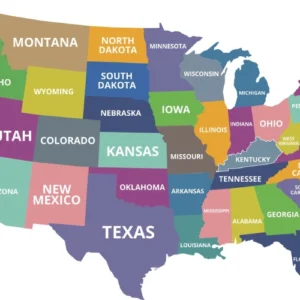Key Takeaways
- Becoming a notary public is a rewarding and accessible way for those seeking a meaningful way to serve their communities.
- The process includes meeting state eligibility requirements, completing applications, and passing the required background checks.
- Notaries play a vital role in preventing fraud and verifying documents, offering a crucial public service.
- Ongoing education and a thorough understanding of notary law are essential to maintain certification and ensure adherence to best practices.
- Resources such as industry updates and state government guidelines can help new notaries stay informed.
The Role of a Notary Public in Society
Notary publics are impartial witnesses appointed by the state to authenticate signatures on important documents. They prevent fraud and ensure transaction integrity, including property deeds, affidavits, and powers of attorney. By verifying signers’ identities and ensuring voluntary action, notaries create accountability and protect against fraud and misrepresentation. Suppose you are interested in serving your community. In that case, resources like how to become a notary in Florida can guide you through the state-specific steps for this responsible public service role. Becoming a notary is also an excellent way to enhance your professional credibility. It allows you to provide a valuable service while building trust with clients and employers. Additionally, the process often involves training and certification, ensuring you are well-prepared for your duties.
Common Reasons People Become Notaries
People choose to become notaries for personal and professional reasons. Personally, they provide valuable community services, helping with official paperwork and fighting fraud. Professionally, being a notary boosts job flexibility, as employers value on-site notarizations, benefiting real estate agents, law office staff, and bankers. Notary skills are in steady demand across industries, making certification practical and portable.
Basic Eligibility Requirements
Most states require notary applicants to be at least 18, legal residents, and able to read and write in English. A clean background is usually needed—criminal record checks are common. U.S. citizenship isn’t always required, but legal residency is essential. Each state’s Secretary of State publishes disqualifying offenses; applicants should check these rules carefully and stay updated, as regulations can change.
Application Steps and Timeline
The application to become a notary usually starts online or by mail with your state’s commissioning authority. It involves filling out a form, paying fees, and possibly a background check. Some states need applicants to get a surety bond and show it during application. You may need to provide proof of residency, a driver’s license, or training confirmation. Processing takes two weeks to two months, depending on your area. Regularly checking your application status and responding quickly can avoid delays.
Training and Examination
Notary training requirements vary by state, from none to several hours of mandatory coursework. Many states offer handbooks and online resources to help notaries understand legal and ethical issues. Passing a state exam may be necessary as standards tighten to boost public trust. Knowing your state’s laws and best practices is crucial; failure to follow procedures can lead to penalties or losing your commission. The American Bar Association provides detailed analysis on evolving training and accountability.
Obtaining a Surety Bond and Supplies
A surety bond acts as a safeguard for the public, offering financial protection if a notary’s mistake causes harm or loss. Most states require new notaries to buy a surety bond of a specific amount before their commission is official. This bond is not insurance for the notary but a guarantee to the public that the notary will carry out their duties ethically and legally. Notaries also need to get essential supplies, such as a notary stamp or seal, a journal for recording official acts, and sometimes other items required by state law. These tools help ensure proper documentation and audit trails for all notarial activities, which is crucial for legal integrity.
Maintaining Good Standing and Ongoing Responsibilities
Notary commissions are not indefinite and require renewal every few years per state guidelines, involving background checks and sometimes updated training. Maintaining accurate records of all notarizations is mandatory to ensure compliance, as these logs may be reviewed if misconduct is suspected. Law changes at the state and national levels can affect notary duties. Subscribing to industry publications like the National Notary Association helps notaries stay informed about best practices, legal updates, and new technologies.
Real-Life Scenarios: What Notaries Experience
Daily, notaries handle diverse documents, from loan papers and estate documents to parental consent and international business agreements. Each notarization presents challenges like verifying foreign IDs, ensuring signer willingness, and overcoming language barriers. Establishing a clear step-by-step approach and knowing when to decline service are vital for maintaining professional standards and legal compliance. Common issues include handling signers with limited English, recognizing coercion, and managing high-pressure real estate closings. Notaries rely on ongoing education and community resources to manage these challenges. Seeking mentorship and continuing education can reduce risks and support success. Whether aiming to advance your career or serve your community, becoming a notary requires integrity and attention to detail, offering a rewarding way to build trust.





